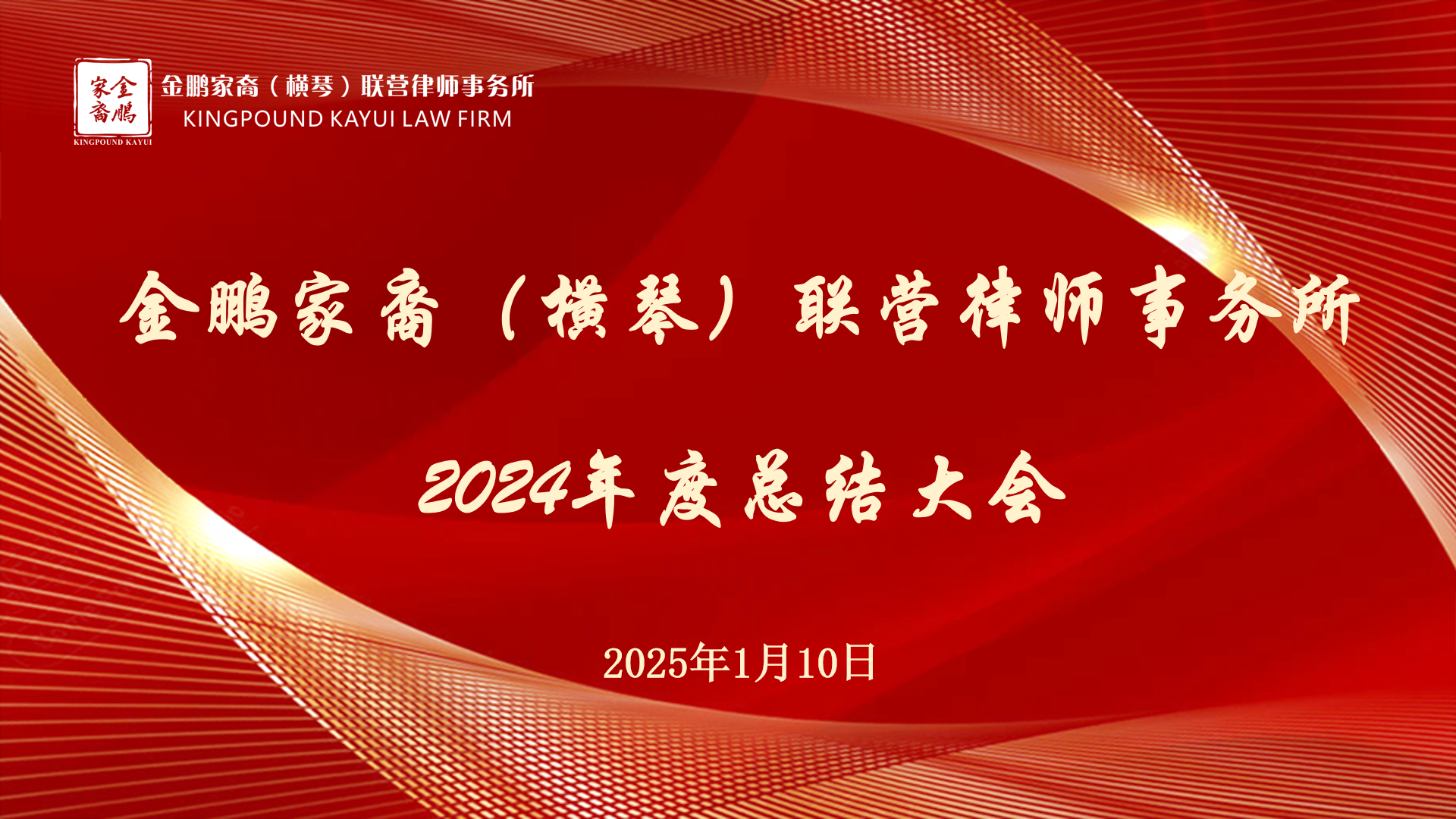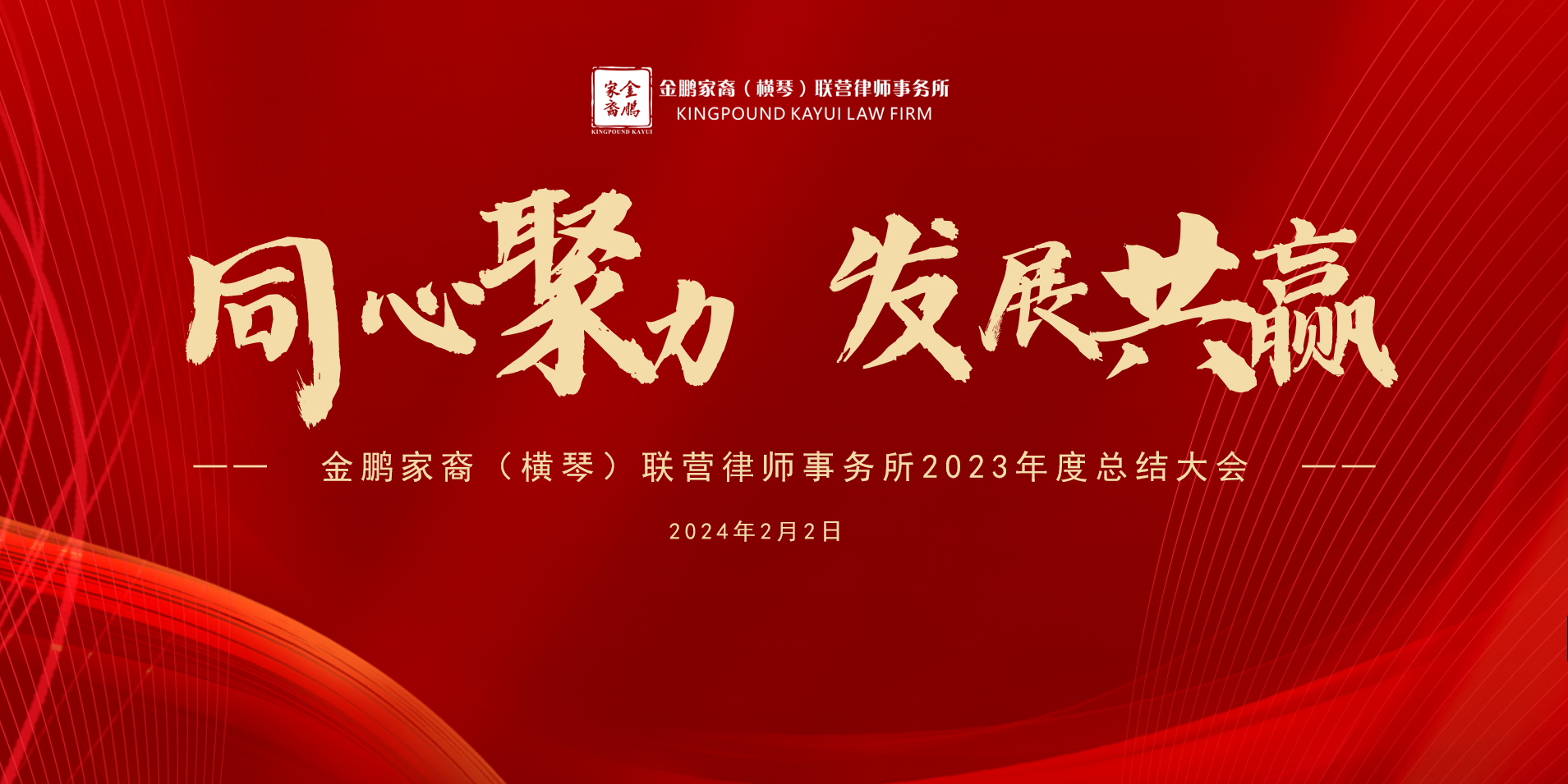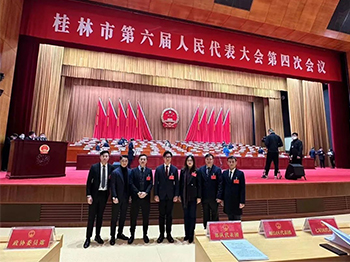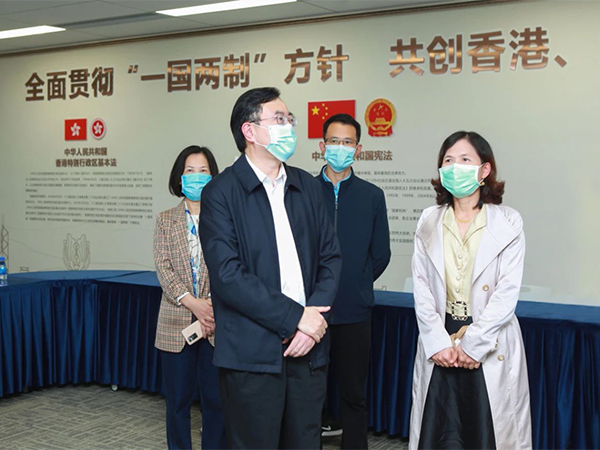Chen Huaqiang, a lawyer in the Guangdong-Hong Kong-Macao Greater Bay Area and a lawyer from our law firm, who is also a member of the National Committee of the Chinese People's Political Consultative Conference (CPPCC), attended the Third Session of the 14th National Committee of the CPPCC as a member from the Macao region.
From March 4th to 10th, 2025, the Third Session of the 14th National Committee of the Chinese People's Political Consultative Conference (CPPCC) was grandly held in the Great Hall of the People in Beijing. This session focused on the country's major development plans. Centering around the decision-making and arrangements of the Central Committee of the Communist Party of China and closely following the central tasks of the Party and the country, it gathered wisdom and strength for promoting Chinese-style modernization. Chen Huaqiang, a lawyer in the Guangdong-Hong Kong-Macao Greater Bay Area and a lawyer from KINGPOUND KAYUI (Hengqin) Joint-Venture Law Firm, who is also a member of the National Committee of the CPPCC, attended this grand event as a member from the Macao region.
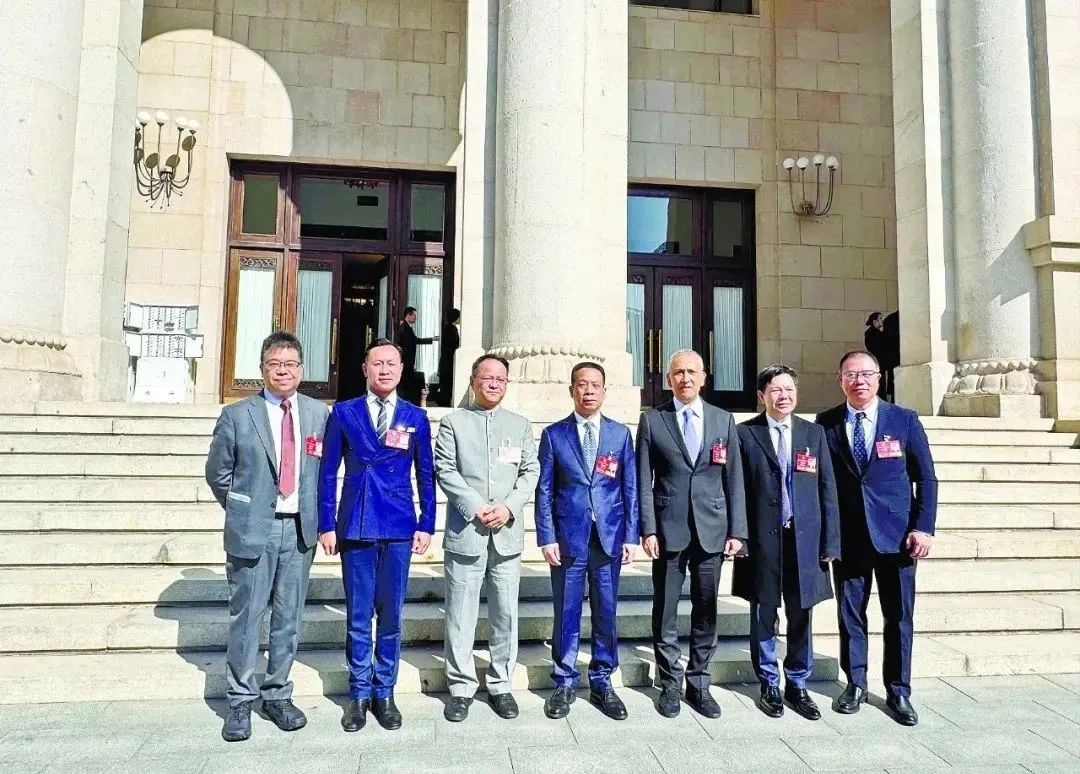
Chen Huaqiang (the third person from the left on the left side)
Lawyer Chen Huaqiang actively participates in consultative and deliberative activities, earnestly performs his duties, and actively offers suggestions and advice. Lawyer Chen Huaqiang, together with nine other committee members, believes that in order to promote the in-depth development of the integration of Hengqin and Macao, it is necessary to be more daring in innovation and courageous in making breakthroughs. Taking Portuguese-speaking countries as a small entry point, an attempt should be made to allow their products to enter the Guangdong-Macao In-Depth Cooperation Zone in Hengqin duty-free, so as to boost the diversified development of the cooperation zone and Macao, demonstrate a sense of responsibility and take actions, accumulate experience, and advance the process of opening up.
There are risks in fully liberalizing.
Lawyer Chen Huaqiang and eight other people believe that many plans were put forward to assist the Guangdong-Macao In-Depth Cooperation Zone in the early stage of its establishment. In the policy documents on the "closure of the border" issued last March, a great many preferential policies were also granted to the cooperation zone. In particular, the expansion of the scope of duty-free entities and goods, allowing items within the goods list to enjoy duty exemption, and the further simplification and optimization of the declaration process, etc., all play an important role in the construction of the cooperation zone. However, there is indeed still a slight gap between these policies and the expectations of society. Although society fully understands that if goods, especially tobacco, alcohol, etc., are fully liberalized to enter the cooperation zone, there may be certain problems and many risks and challenges will be faced. Therefore, it is still necessary to explore feasible paths in this regard.
Pilot first and observe the effectiveness.
They believe that the advantages of the China-Portugal platform and the mechanism of the China-Portuguese Speaking Countries Business and Economic Forum should be fully utilized. It is advisable to take Portuguese-speaking countries as a small entry point and try to allow products from Portuguese-speaking countries, such as Portuguese red wine, to enter the Guangdong-Macao In-Depth Cooperation Zone duty-free. Alternatively, when products from Portuguese-speaking countries enter the Cooperation Zone, the tariff system of Macao can be applied. By conducting such pilot trials first, the risks and challenges faced after full liberalization can be observed, so as to achieve the experimental purpose of the operation of the "open the first line and manage the second line" after the border closure in Hengqin. Then, a further assessment can be carried out to provide favorable experience and data for making a larger-scale opening up.
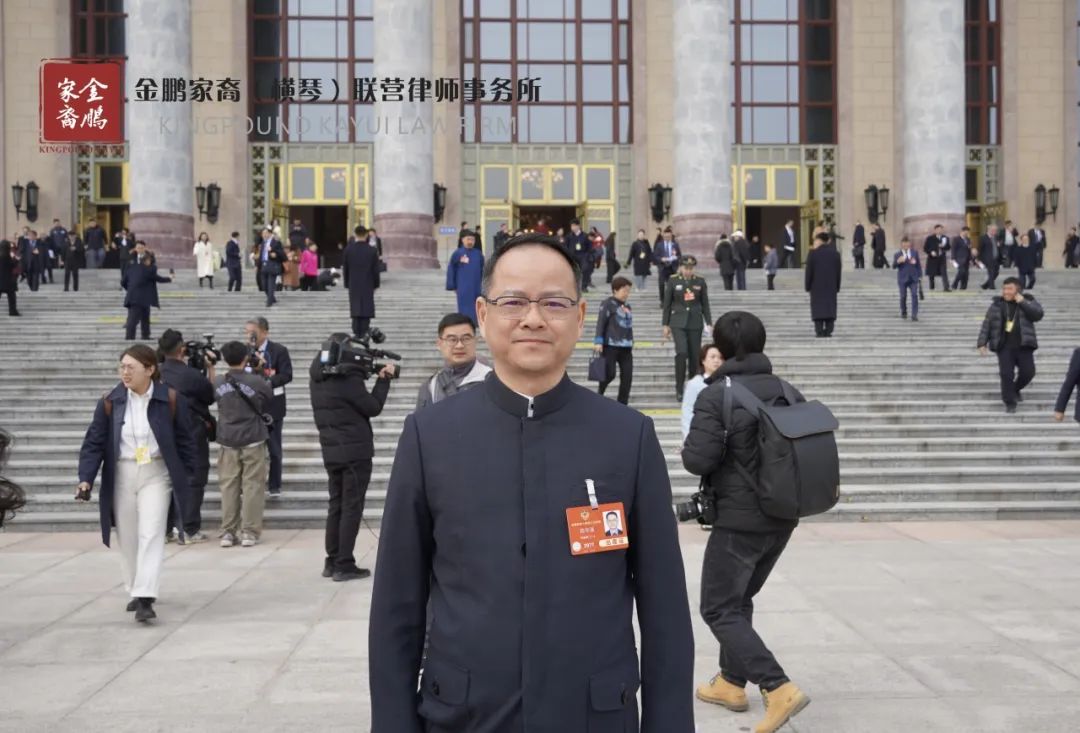
Lawyer Chen Huaqiang earnestly listened to and deliberated on the work report of the Standing Committee of the National Committee of the Chinese People's Political Consultative Conference (CPPCC) and the report on the work of proposals. He attended as a non-voting delegate the second plenary meeting of the Third Session of the 14th National People's Congress of the People's Republic of China, and listened to the work report of the Standing Committee of the National People's Congress delivered by Zhao Leji, Chairman of the Standing Committee of the National People's Congress, the work report of the Supreme People's Court delivered by Zhang Jun, President of the Supreme People's Court, and the work report of the Supreme People's Procuratorate delivered by Ying Yong, Prosecutor General of the Supreme People's Procuratorate.
He stated that the figures in the work reports of the Supreme People's Court and the Supreme People's Procuratorate fully reflect the people-centered judicial philosophy of these two institutions, and further highlight the spirit of "putting oneself in the position of the litigant" and "prosecution for the people", effectively addressing the issues that the people are concerned about. At the same time, both reports clearly indicate that the number of cases involving telecommunications network fraud concluded last year has increased significantly. This shows that the crackdown on this type of crime has been intensified. Telecommunications network fraud cases have troubled the people for many years and have had a serious impact on the personal safety and property of some individuals. It is a matter of great concern to the people. Strengthening the fight against this type of crime is an important manifestation of the people-centered approach.
This article is sourced from: Macao Daily News
Introduction of the Lawyer
Chen Huaqiang A lawyer in the Guangdong-Hong Kong-Macao Greater Bay Area
Areas of Practice: Criminal Law, Commercial Law, Civil Law
Social Positions: Member of the 14th National Committee of the Chinese People's Political Consultative Conference (CPPCC) Member of the 12th Guangdong Provincial Committee of the Chinese People's Political Consultative Conference (CPPCC) President of the Macao Institute of Legal System Studies President of the Macao Alumni Association of China University of Political Science and Law Director of the Alumni Association of China University of Political Science and Law Member of the Advisory Committee of Macau University of Science and Technology President of Macao Law and Politics Journal Vice Chairman and Deputy Secretary General of the Macau Federation of Legal Workers Member of the Working Group on the Financial Legal System of the Monetary Authority of Macao Vice Chairman of the International Mediation Center for Engineering Disputes among Guangdong, Hong Kong and Macao in the Guangdong-Macao In-Depth Cooperation Zone in Hengqin General Legal Counsel of Red Magazine Member of the Advisory Committee of the Shenzhen Blue Ocean Greater Bay Area Legal Service Research Institute Arbitrator of the China Guangzhou Arbitration Commission Arbitrator of the Zhuhai Arbitration Commission Mediator of the Mediation Center of the China Council for the Promotion of International Trade/China Chamber of International Commerce Mediator of the Shenzhen Qianhai International Commercial Mediation Center
